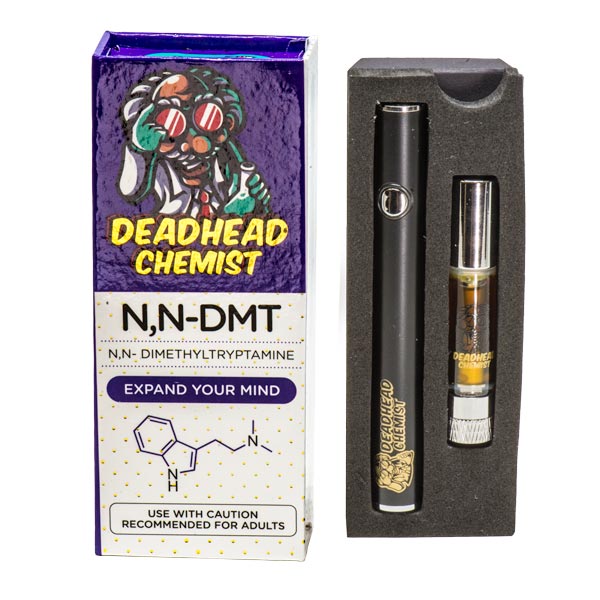Is 5-MeO-DMT Legal in the USA?
5-MeO-DMT (5-methoxy-N,N-dimethyltryptamine) is a potent, naturally occurring psychedelic substance. It is found in several plant species and the venom of the Bufo alvarius toad, also known as the Colorado River toad. Its use in traditional shamanic rituals and modern psychonaut communities has been reported, yet its legal status varies widely across different jurisdictions. This article provides a comprehensive overview of the legal status of 5-MeO-DMT in the USA, covering federal and state regulations, historical context, medical and recreational use, and frequently asked questions.
1. Understanding 5-MeO-DMT
1.1. Chemical Composition and Effects
5-MeO-DMT is a tryptamine derivative with a chemical structure similar to other psychedelics like DMT (N,N-dimethyltryptamine) and psilocybin. It is known for producing intense and short-lasting psychedelic experiences, characterized by profound alterations in perception, consciousness, and a sense of unity with the surroundings.
1.2. Historical and Cultural Context
Historically, 5-MeO-DMT has been used in indigenous rituals in South America. The substance gained popularity in the West through the psychonaut subculture, which seeks altered states of consciousness for spiritual or recreational purposes.
2. Federal Legal Status
2.1. Controlled Substances Act (CSA)
Under the Controlled Substances Act (CSA), enacted in 1970, substances are classified into five schedules based on their potential for abuse, medical use, and safety. 5-MeO-DMT is classified as a Schedule I substance, which means it is considered to have a high potential for abuse, no accepted medical use, and a lack of accepted safety for use under medical supervision.
2.2. DEA Regulations
The Drug Enforcement Administration (DEA) enforces the CSA and has placed 5-MeO-DMT under Schedule I. This classification makes it illegal to manufacture, distribute, possess, or use 5-MeO-DMT without a DEA license. Violation of these regulations can lead to severe legal consequences, including fines and imprisonment.
2.3. Exceptions and Research
While Schedule I status restricts general use, the DEA may grant exceptions for scientific research. Researchers must obtain special licenses and adhere to stringent regulations to study the substance’s effects, potential therapeutic uses, and safety.
3. State-Specific Legal Status
3.1. Overview of State Laws
State laws regarding 5-MeO-DMT can vary significantly. Some states align with federal regulations, while others have additional restrictions or varying degrees of enforcement. This section provides an overview of notable state-specific regulations.
3.2. States with Additional Restrictions
- California: 5-MeO-DMT is classified as a controlled substance under California law, mirroring its federal status.
- Texas: The state follows federal guidelines, making possession, sale, or manufacture of 5-MeO-DMT illegal.
3.3. States with Potential for Legal Reform
- Oregon: Known for progressive drug policy reforms, Oregon has decriminalized small amounts of most drugs, including psychedelics. However, 5-MeO-DMT remains illegal for general use.
- Colorado: Recent initiatives have led to decriminalization efforts for certain psychedelics in some municipalities, but state law still aligns with federal restrictions.
4. Medical and Recreational Use
4.1. Therapeutic Potential
Recent studies suggest that 5-MeO-DMT may have therapeutic potential for conditions such as depression, anxiety, and PTSD. However, its Schedule I status limits clinical research and medical application.
4.2. Recreational Use and Risks
Recreational use of 5-MeO-DMT is associated with significant psychological risks, including intense and unpredictable experiences. The legality of recreational use remains strictly prohibited under current federal and state laws.
5. Legal Consequences and Enforcement
5.1. Federal Penalties
Violating federal laws regarding 5-MeO-DMT can result in severe penalties, including imprisonment and fines. The severity of the penalties often depends on the quantity involved and prior offenses.
5.2. State Penalties
State penalties for 5-MeO-DMT-related offenses vary but generally mirror federal consequences. Some states may impose additional penalties, reflecting local policy and law enforcement priorities.
6. Advocacy and Legal Reform Efforts
6.1. Psychedelic Advocacy Groups
Organizations like the Multidisciplinary Association for Psychedelic Studies (MAPS) advocate for the legal and medical recognition of psychedelics, including 5-MeO-DMT. They work to influence public policy and promote scientific research.
6.2. Legislative Efforts
Recent legislative efforts aim to reclassify or decriminalize certain psychedelics. While most of these efforts focus on substances like psilocybin, there is a growing interest in the potential benefits of 5-MeO-DMT.
7. FAQs
7.1. Is 5-MeO-DMT legal in the USA?
No, 5-MeO-DMT is classified as a Schedule I controlled substance under federal law, making it illegal to manufacture, distribute, possess, or use without special permission.
7.2. Can I use 5-MeO-DMT for medical purposes?
Currently, 5-MeO-DMT is not approved for medical use in the USA. Research on its therapeutic potential is ongoing but restricted by its Schedule I status.
7.3. What are the penalties for possessing 5-MeO-DMT?
Penalties for possession of 5-MeO-DMT can include fines, imprisonment, and a criminal record. The severity depends on the amount in possession and prior legal history.
7.4. Are there any states where 5-MeO-DMT is legal?
No state has fully legalized 5-MeO-DMT. Some states have decriminalized small amounts of certain psychedelics, but 5-MeO-DMT remains illegal for general use.
7.5. How can I legally research 5-MeO-DMT?
Researchers must obtain special licenses from the DEA and adhere to strict regulations to study 5-MeO-DMT. The process involves rigorous application and compliance with federal laws.
7.6. What is the future of 5-MeO-DMT legality in the USA?
The future of 5-MeO-DMT legality depends on ongoing research, public opinion, and legislative efforts. Advocacy groups continue to push for reform and recognition of its potential benefits.
Conclusion
The legal status of 5-MeO-DMT in the USA is complex and strictly regulated under federal and state laws. While there is growing interest in its potential therapeutic uses, current regulations classify it as a Schedule I substance, limiting its availability and use. Ongoing research and advocacy efforts may influence future legal reforms, but for now, 5-MeO-DMT remains illegal for general use in the USA.

